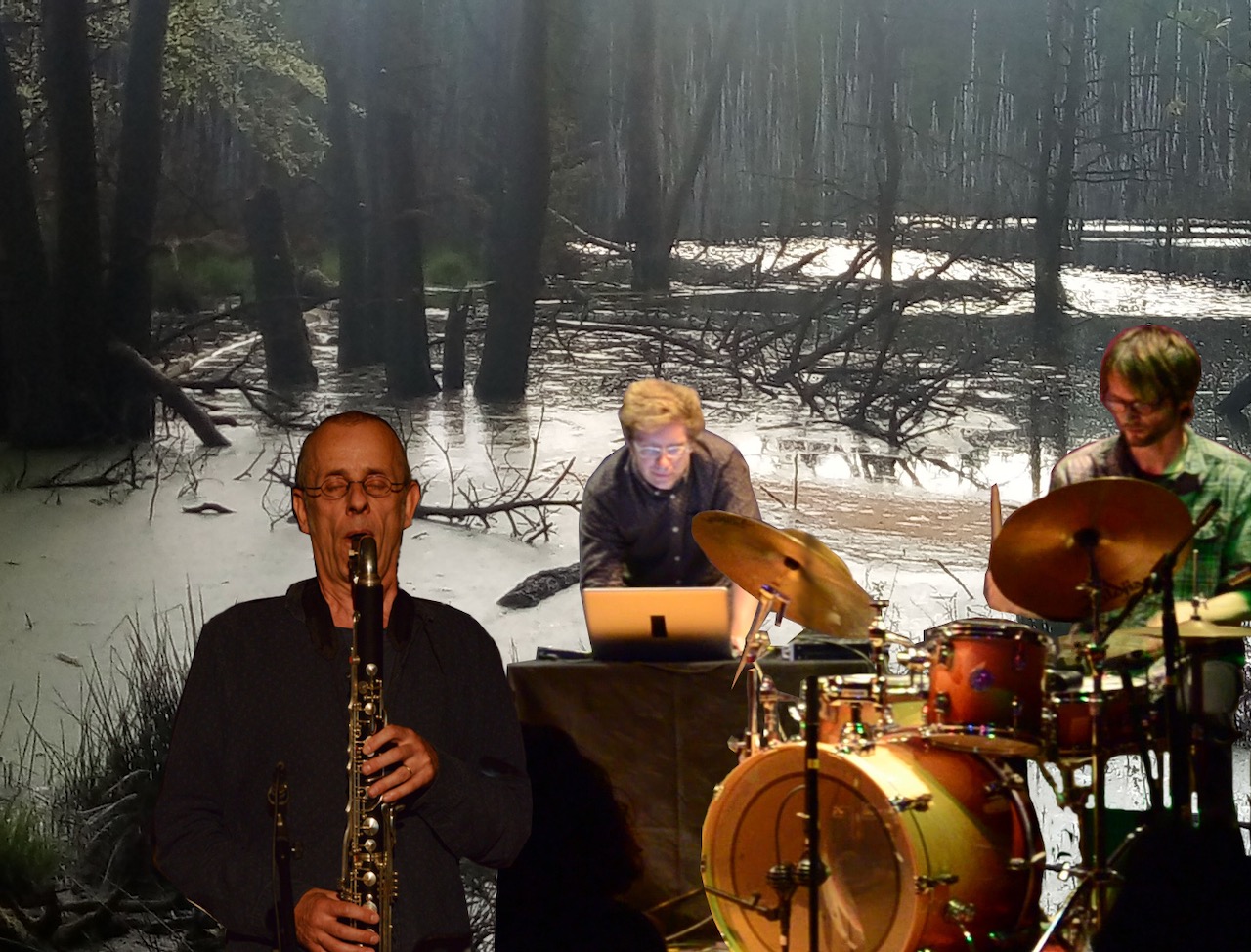
Lothar Ohlmeier - bass clarinet
Isambard Khroustaliov - modular synthesizer & computer
Rudi Fischerlehner - drums
The electroacoustic trio of Lothar Ohlmeier, Rudi Fischerlehner and Isambard Khroustaliov came about, without fanfare or design, through mutual friendship, empathy and curiosity in each other’s music. Since 2019, the band has released two albums on the English label Not Applicable: “Hypertide over Kiribati” and “In the Gloaming.”
Imagine a conversation between friends unfolds as the day fades. No one gets up to turn the lights on, instead, they revel in the spell twilight weaves and the quieting world around them. Echos and remains of the day are filtered through this new state of being; senses on edge, wits sharpened as what is visible recedes. The surroundings that had once seemed so absolute, rigid and certain dissolve and unravel in a flow of allusions and enquiry. Thoughts and actions, adrift once more, surf the infinite flux of space and time.
"The
music reflects an intimate and highly nuanced, conversational
mode, a democratic, three-way musical exchange of ideas and deep
listening."
Salt Peanuts
"Sound
truly unlike anything else."
Kris
Needs, Electronic Sound
"From
the beginning In the Gloaming is a work of intuition, and the
interplay between the three musicians is something special."
Aural Aggravation
"...
a trio who offer new insights, a world away from any defined
genre."
Marlbank
"It
makes you think, but also makes you feel — and that can only be
a good thing."
Freq

"In The Gloaming", Not Applicable 2024, bandcamp